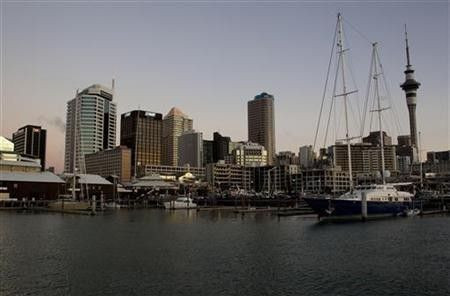New Zealand May Make History With -25.6C Extreme Weather Temperature In Ranfurly

New Zealand may be setting a new record in extreme weather. The World Meteorological Organisation is considering the information on the newly discovered report from Central Otago 111 years ago. The report indicated a temperature reading of -25.6 degrees Celsius at Ranfurly on July 17, 1903.
If the WMO accepts the reading as an official one, it would become the coldest temperature ever recorded in the Oceania region, the New Zealand Herald reports. Gregor Macara, National Institute of Water and Atmosphere climate scientist, had submitted the reading following a long investigation of its authenticity. The research included tracking and going through newspaper archives of the Otago Daily Times, Mt. Ida Chronicle, Southland Times and Tuapeka Times.
Macara said he was trying to determine the weather conditions leading up to the coldest temperature reading. He declared that such a recording does not usually happen in isolation in New Zealand. He believes a series of weather events must have caused the extremely cold temperature. Based on his research of news articles, a massive snowstorm was reported in South Island on July 10, 1903. In the succeeding days, Macara said temperatures fell drastically after the skies have cleared.
The old newspaper reports have indicated news articles of frozen meat, milk, turnips and the even the ink at the post office in the days following the snowstorm in July 1903. WMO is expected to arrive at a decision by the New Year.
Meanwhile, independent climate scientists Dr Jim Salinger warned Aucklanders to prepare for climate change. The leading expert and author of the book "Living In a Warmer World" is scheduled to hold a public lecture at Auckland University about the effect of climate change to the city.
According to current projections, New Zealand may experience an increase in temperatures by 2 degrees Celsius by the end of the century. Scientists believe New Zealand temperatures could increase by as much as 4 degrees Celsius if no action is taken to reduce global carbon emissions.
The WMO has recently announced that 2014 is on track to become the hottest year ever since records began. The UN agency cited a combination of high global ocean temperatures and record-breaking greenhouse emissions as the greatest factors for making 2014 the hottest year yet.





















